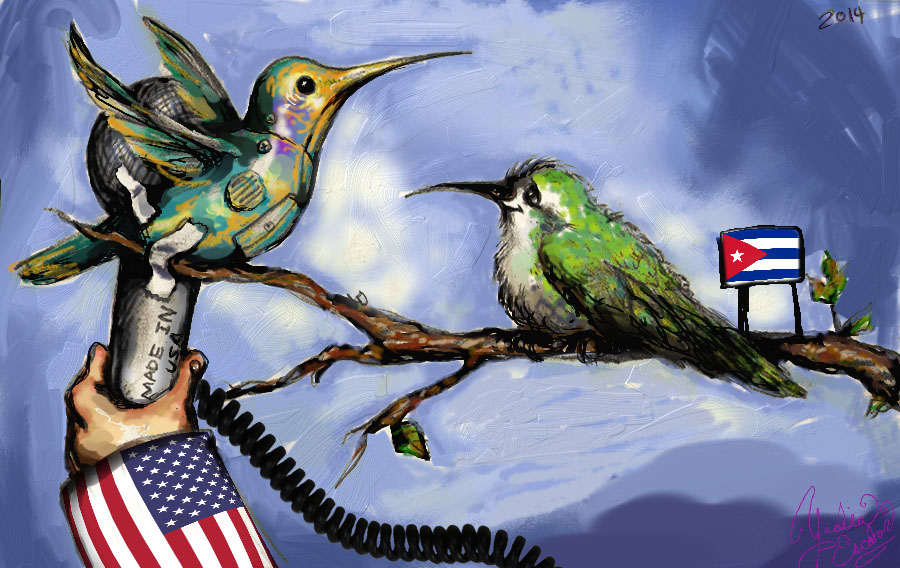
‘ZunZuneo,’ Alan Gross and public opinion
MIAMI — In December 2009, Alan Gross was arrested in Cuba for violating that country’s laws by introducing sophisticated communications equipment. His mission was part of a program of the U.S. Agency for International Development intended to provoke a regime change.
Months later, in July 2010, Jose McSpedon, a U.S. government official, traveled to Barcelona to activate a secret plan of subversion in the island, utilizing the social media.
A team of contractors tried to create a “Cuban Twitter” with tools not associated with the Internet but relying on a message network that would reach hundreds of thousands of Cubans through their cell phones.
The secret plan, according to The Associated Press, included numerous private companies acting as fronts, and bank accounts in a fiscal haven, the Cayman Islands. It also had a catchy name: “ZunZuneo.”
Many people were deceived, from the recruited executives who didn’t know about the links between the enterprise and the U.S. government, to the numerous Cubans who did not realize that their personal data would be kept by the contractors with political objectives of subversion.
The secret objective would be to collect data from the clients and form a widespread network of subscribers available for future projects of social mobilization against the Cuban State, in a manner similar to the one used in “rainbow revolutions.”
The “Arab springs,” which were totally supported by social networks, served as inspiration for the project against social peace in Cuba. Possibly other parallel projects by “nonprofit” foundations engaged in sending telephones, USBs and other equipment, such as tablets, would serve to multiply the effects of political agitation. The main element consisted of vulnerable young people who would join the project without knowing its true nature.
Today (April 3), White House spokesman Jim Carney talked about ZunZuneo and tried to justify it, saying, “USAID is a development agency, not intelligence. The suggestions that it was a covert program are wrong.”
This swift political response is understandable, in view of the scandal now battering the State Department. But it will be very difficult for them to cover the sun with a thumb after they violated so many laws. The most immoral part of the subversive project would be the manipulation of the civilian society in Cuba by not informing the likely users about the nature of the service. Many fell to the deceit and the lack of transparency.
Radio and TV Martí habitually promote companies not based in the United States that offer “special services” to the owners of mobile phones inside Cuba.
Piramideo is one of the companies that offers tools that often are used to disseminate false rumors or alarming news inside Cuba, as part of the media war waged by Washington against Havana.
More alarming still is when the project is concealed and made secret. Senator Patrick Leahy said that “there is the risk that young Cubans make use [on the island] of the service in their cell phones without knowing that it is an activity financed by the government of the United States.”
Now that public opinion in the United States knows about this grave ethical crisis, which may even violate the laws of the embargo against the Cuban State, we might be closer to a different foreign policy.
A policy perhaps more honest that facilitates the return of Alan Gross in exchange for the freedom of the Cubans sent to prison in the U.S. for alleged espionage. It should be clear that neither Alan Gross is an innocent victim nor Cuba’s Jewish community took part in the mission for which Gross was hired.
It is also possible that we are in a position to understand why not long ago the USAID tried to separate itself from the covert intelligence activities against Cuba. The relations between the people of the United States and Cuba are necessary and most important.
All the agencies accustomed to conspire from positions of elitism, turning their backs to the American people, should be called to account before Congress and the laws of the Union.


